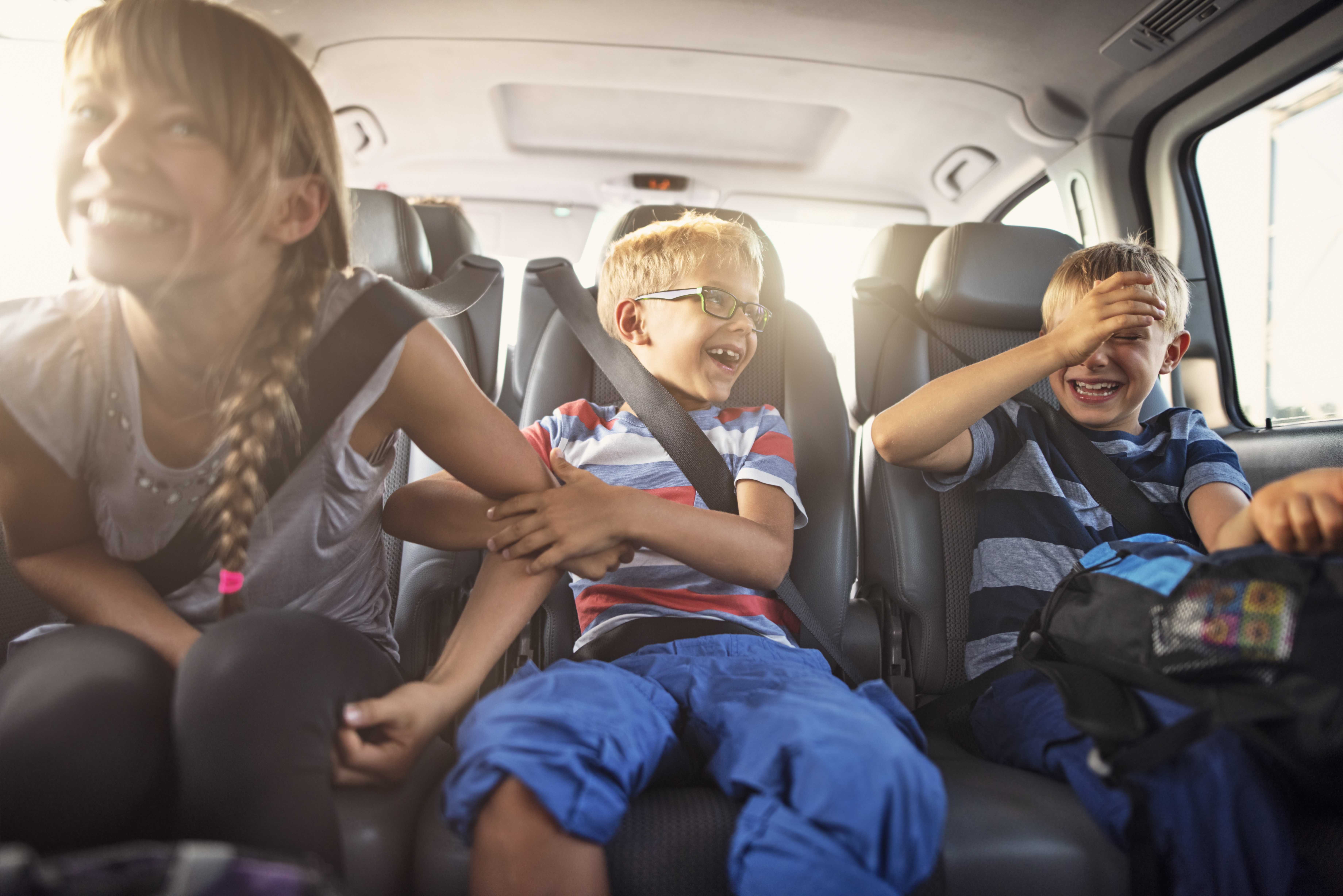Have a fun, safe trip! Tips for traveling with toddlers

Even the most seasoned parent will agree that traveling with young children can be overwhelming. You might be on vacation, but your child still needs your full attention to stay safe and healthy.
And when it comes to traveling with toddlers ... well, that’s a whole different ballgame. However, you can manage it all confidently. Here are some expert tips from our pediatric providers that will make your next trip easier, so you and your toddler can enjoy your time together.
Empathize with your little traveler
One of the best things a parent can do before traveling with a young child is take a moment to appreciate that travel doesn’t necessarily provide the same benefit for toddlers as it does for adults.
Adults enjoy vacation because it’s a break from routine. But a break from routine for toddlers can cause uneasy feelings and restlessness. Toddlers thrive on routine — their everyday routine makes them feel safe and cared for.
So, before you hit the road with your toddler, think about how you can stick to their routine as closely as possible while you’re away from home.
Plan a makeshift routine for a traveling toddler
Even something that seems small, like allowing your child to hold their favorite stuffed animal or blanket during the car ride or flight, can make a big difference in their comfort during your trip.
Other important routine needs you’ll need to provide for your toddler while you’re traveling are:
- Diapering or toileting. Pack enough diapers, extra changes of underwear and clothes, and wipes — and place them where they’ll be easy to reach.
- Entertainment. Give your toddler several options with a mix of picture books, coloring books and toys that are appropriate for car or air travel. Try to use these before resorting to screen time.
- Hydration. Pack a water bottle just for your toddler to prevent dehydration.
- Nourishment. For lasting energy and a happy belly, bring along fresh fruit and other healthy snacks that contain complex carbs, fiber and protein. Avoid candy and other unhealthy snacks, as these won’t really satisfy your child’s hunger.
- Physical activity. If you’re traveling by car, plan for a break at a rest stop or park so your child can move a bit and get the wiggles out.
And keep this thought top of mind throughout your journey: If my child is upset, they need my comfort. Remember the toddler’s perspective on travel, and offer lots of hugs and reassurance to ease their worries.
Prepare for the unexpected
No one expects illness or injury on vacation, but it’s still good to be prepared for a minor bug or scraped-up knee. A first-aid travel kit can help you do that. With one packed away in your car or luggage, you won’t have to scramble en route to find what you need to comfort your child.
You can buy a preassembled first-aid kit or put one together on your own. Some retailers even sell kits made just for toddlers and children. When looking for or creating a travel first-aid kit for toddlers, make sure it includes at least the following:
- Antibiotic ointment for healing minor scrapes and cuts
- Antiseptic wipes for cleaning minor wounds
- Assorted adhesive bandages in various sizes
- Calamine lotion for treating minor itching from contact with poison ivy, poison oak or poison sumac
- Children’s Motrin or Tylenol for bringing down a fever (ask your child’s health care provider for the most up-to-date dosage, based on your child’s most recent height and weight)
- First-aid manual for instructions on what to do in emergency situations
- Gauze and medical adhesive tape
- Hand sanitizer
- Hydrocortisone cream for soothing insect bites
- Medicine cup or spoon
- Saline nasal drops or spray for clearing stuffy noses
- Thermometer for monitoring fever
- Tweezers for removing splinters
Don’t forget that cough and cold medications, anti-diarrhea and anti-nausea medicines, and aspirin are not recommended for toddlers. If your child has diarrhea or vomiting, do your best to keep them hydrated with water or an electrolyte drink made for toddlers, and seek emergency care if you suspect dehydration.
Never hesitate to call your pediatrician for help. Even when you’re away from home, you can call with questions or concerns. Always call 911 or go to the nearest emergency room for emergencies.
Other important things to consider before your trip
If you’re traveling by car:
- Check the National Highway Traffic Safety Administration’s car seat recommendations to learn which car seat is right for your child’s age and size.
- Read your child’s car seat owner’s manual to make sure it’s installed correctly in your car and that your child hasn’t outgrown the car seat.
If you’re traveling by plane, get to know all air travel guidelines before your trip. This will help you avoid any upsets at the security gate. Getting to know the air travel guidelines is especially important if you plan to pack food and drinks in your carry-on luggage:
- Visit the official websites of the Federal Aviation Administration (FAA) and the Transportation Security Administration (TSA) to learn guidelines for all U.S. travelers.
- Check your airline’s official website for any rules specific to the airline.
Have questions on assembling a first-aid kit for toddlers? Your UK HealthCare pediatric primary care provider can help. Call your local office with any questions today.




